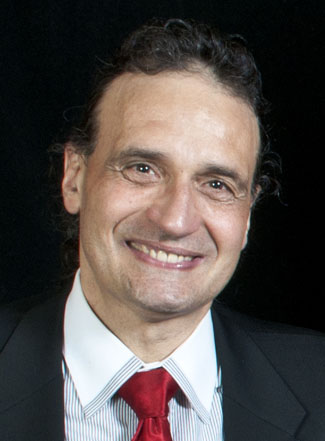Michael Bruni says he wishes more lawyers would get involved with Hockey Canada at the higher levels of the organization.

The new chairman of Hockey Canada, which represents minor hockey programs and Canada’s national hockey teams, says the largely volunteer organization faces significant issues in the future and could benefit from those who better understand governance and the importance of following through on due diligence.
“We don’t want a lot of lawyers, but we need more lawyers,” says Bruni. “In my history I’ve run mini law firms, done the in-house role, and know that lawyers can provide a real value-add.”
Bruni, who was general counsel at the Alberta Energy and Utilities board, stepped down for the special assignment with the organization when the province was developing a new regulatory regime. He is now a special adviser to the Alberta Energy and Utilities board, in addition to doing his two-year term with Hockey Canada, which is not a paid position (he receives an honorarium).
He says Hockey Canada is very conscious of the potential liability that could come down the road from players taking severe hits during games.
“We see that head hits could evolve into dementia, depression, a quality of life that is very different and we’re seeing it at a very young age. I prompted our people in the insurance end of the business that we have to keep our heads up and exercise due diligence for that reason,” he says.
In particular, Bruni says he is watching the Steve Moore-Todd Bertuzzi case which could have implications for the sport at all levels.
“I’ve said to our people that we’re going to lose our regulatory autonomy to either the politicians or the judicial system if we don’t exercise due diligence. I’ve really tried to impart that,” he says. “Our game is becoming much more complicated from an administrative perspective. I said years ago that hockey is a multi-billion dollar business run like a ma and pa operation and it really is in a lot of ways.”
Bruni points out that there are several leaders in the NHL with legal backgrounds now — Brian Burke, Peter DeBoer, and Pat Quinn to name a few.
“One of our [Hockey Canada] officers is a lawyer from Montreal and when I discuss things he gets it right away,” says Bruni. “When you get to our level you don’t need to understand the game that much but the administrative processes and how to deal with people is important. It’s always great to understand the implications legally of what might happen.”
From a governance perspective, Bruni says it’s about understanding what the role of a policy-driven board is; understanding what a board member’s role is — and to not make sure they don’t get caught up in the operations of the organization.
“Many volunteers are parents and they go through the local community, then the provincial body, and then some arrive at the national scene and don’t always see the big picture, whereas lawyers can look at the big picture of governance more quickly,” he says.
“We’re looking at the governance of the organization from the policy/board perspective because our board is just too large,” he says. “We’re somewhere in the number of 30 people and it’s too large to conduct business efficiently. We are a multi-million-dollar organization and even though it’s not-for profit we’ve been fairly successful in our events.”

 The new chairman of Hockey Canada, which represents minor hockey programs and Canada’s national hockey teams, says the largely volunteer organization faces significant issues in the future and could benefit from those who better understand governance and the importance of following through on due diligence.
The new chairman of Hockey Canada, which represents minor hockey programs and Canada’s national hockey teams, says the largely volunteer organization faces significant issues in the future and could benefit from those who better understand governance and the importance of following through on due diligence.